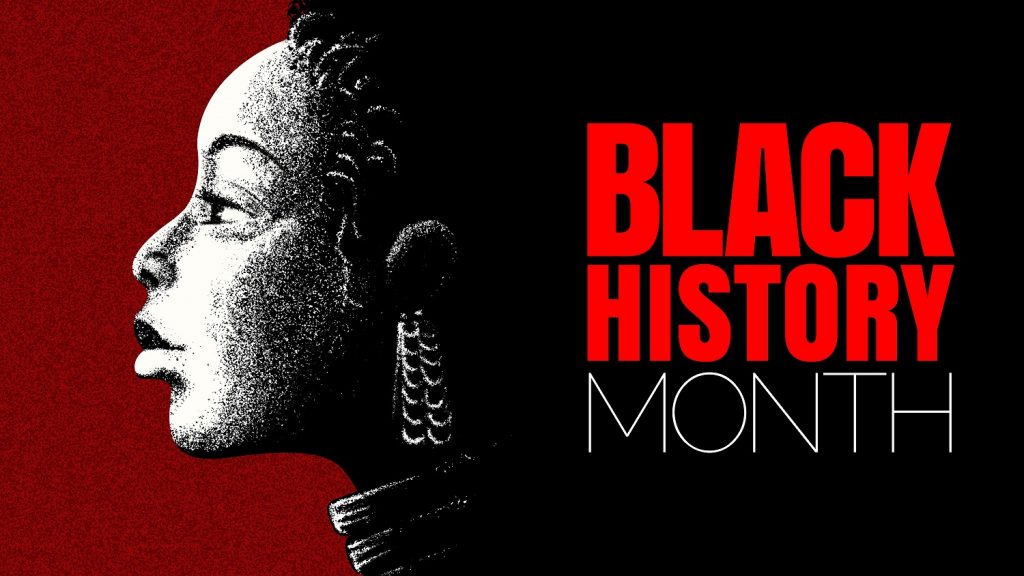LONDON – When Prophet Muhammad, peace be upon him, and his companions sat together wondering how to call the masses to congregational prayers, it was Bilal, a freed slave, a Black man, who was granted the honor of calling out the now universally known sound; something so very beautiful, that when sung with musical precision can move a person’s soul.
Black History Month (BHM) is an annual program of events, originating from 1926, celebrated by Canada, the United States, the United Kingdom, Ireland, and the Netherlands.
It is an important way of remembering the history of the African Diaspora whose spirit and message is often lost in our modern world with cultures increasingly becoming one.
There are dozens of events across the UK. For example, this year Nadeem Dawud will deliver a talk on the History of Islam in Africa.
A former student at Oxford University, Nadeem will talk about how Islam spread across Africa, African contributions to Islamic history and culture, and the richness of ‘African Islam.’

Also in Oxford, Black Oxford Untold Stories is working with the Bodleian Library to deliver a symposium that will look at the “background, context and depictions of previously unseen caricatures of Christian Frederick Cole, Oxford University’s first Black African Scholar 1873, and the first Black African to practice Law in the English High Court, 1884.”
Speaking of BHM, British Muslim Humera Khan says, “I have also been a critic of BHM not because I don’t think it is necessary, and yes it continues to be necessary, but because it takes away the responsibility of mainstream education to integrate the truth in history into the mainstream curriculum and education culture.
“But in the absence of this happening, it is important to not only keep BHM going but to expand it into the broader experiences of Black history and not just a few key figures that get put out every year.”
Celebrating Diversity
Of course, not all commentary is positive. The Guardian newspaper ran an article whose headline reads, “Councils condemned for ‘shameful’ rebranding of Black History Month.”
Commenting on this, British Muslim Shaaz Mahboob said, “If councils aren’t scrapping Black History Month and are instead making it more diverse and inclusive, what’s wrong with it? There are more brown people in this country than blacks so why can’t they share a month?”
Shahzad Younus, the founder of muzmatch, underlined the spirit of the month citing Prophet Muhammad, “All mankind is from Adam and Eve, an Arab has no superiority over a non-Arab, nor a non-Arab has any superiority over an Arab; a white has no superiority over a black nor does a black have any superiority over a white, except by piety and good action.”
He added, “It’s pretty simple.” Yes, the spirit of life is simple, but the reality is that discrimination is sadly the norm.
Activist Nusrat Lodda said, “If you want to show your dedication and solidarity with black struggle, then show up to the cause by not gas lighting or using the nationalism card – but rather engaging with black communities and being present and willing to do grassroots work that puts black betterment as a priority.”
Cambridge scholar and British Muslim Michael Mumisa observed how Black identities are often sidelined, “It’s the 21st century, Arab filmmakers should stop asking their actors to apply shoe polish when depicting black historical figures. There are numerous native Arabic speaking black actors who could play such roles. They should also stop depicting them as caricatures. Do we even have to say this?”

Voice of Islam
When Prophet Muhammad died, Bilal refused to announce the call to prayer. He instead migrated to the Levant, settling in the town of Ayla where he retired. When a plague broke out in the Levant in 18 AH (639 AD), Caliph Umar went there to see how he could help. Just before he was about to leave, the leaders of Damascus petitioned Bilal to announce the call to prayer one last time.
Now an old man, Bilal gave his consent and so from the top of the great mosque of Damascus he announced the call to prayer one last time.
In his book The Caliphate: Its Rise, Decline and Fall, William Muir observed that the entire congregation in attendance fell into tears, as Bilal’s voice reminded them of their time with Prophet Muhammad (PBUH).
Two years after this final call to prayer, Bilal died, but the spirit with which he carried out this important call to prayer reverberates around the world.
What better to celebrate Black History Month, than to recognize how It was the voice and efforts of a black man, Bilal, that inspired centuries of men, women, and children gathering to worship God.
BHM is a reminder that we should not focus only on big personalities but the rights, freedoms, and opportunities of Black people on the whole.
Their origins, their cultures, their histories: what is known widely and what has been casually disregarded, even ignored. For example, 2019 marks the 400 year anniversary of the first slave ship to Virginia, USA, from Ghana. How many of us know that at its height there were over 40 slave castles along the Ghanaian coast?
As Muslims, it is our duty not to focus only on the history and lives of Black Muslims, but all Black people. It is the world’s cultures and history when combined that will bring continued richness to humanity. Whether this is in the UK, the US, in Zimbabwe, or Ghana.
It was the spirit of Muhammad – a prophet to all of humankind – that residents of Damascus were reminded of when Bilal pronounced the call to prayer.
If we want to benefit from the spirit of Bilal, we must acknowledge the lives and spirits of all people, of all colors, of all faiths, in all countries. And what better way than to begin than with Black History Month.
#BeingBlackandMuslim: Celebrating Black History & Looking to The Future
